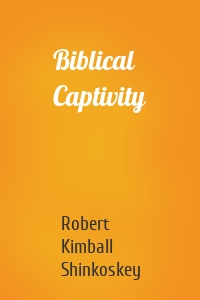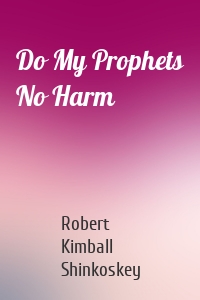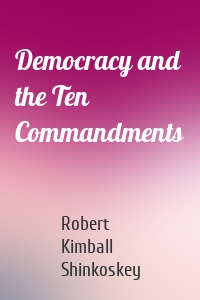Robert Kimball Shinkoskey
3 кн.
Biblical Captivity
Early literary man learned that free speech and free labor were frequently suppressed or obliterated by powerful governments in the Near Eastern world. This is the source of the Bible's passionate interest in liberation from political and economic repression. Moses and his people in Egypt, for example, experienced the rapid disintegration of their traditional right to religious liberty and self-directed labor. They attempted to rectify the situation at Sinai and in Canaan. Mesopotamians and...
| Автор | Robert Kimball Shinkoskey |
Do My Prophets No Harm
A foundational law promoting worship of the God of the Exodus (the Decalogue's First Commandment) has little meaning without a government policy permitting such worship. Robert Kimball Shinkoskey discusses policies in the Bible which enact freedom of religion for prophets and other dissidents who work to restore worship of the God of their ancestors. In the process, he challenges the theological idea of the cessation of prophecy. New revelation from God is necessary to rescue ancient Israel...
| Автор | Robert Kimball Shinkoskey |
Democracy and the Ten Commandments
For 2,000 years Western culture has leaned heavily on the Ten Commandments for guidance in religion, ethics, and morality. The author, drawing upon modern Biblical science, demonstrates that those laws were designed for an entirely different purpose–to provide alternatives to repressive policies Israel reeled under in Egypt. The Decalogue is a political document designed to limit government intrusion into private lives. Its precepts deal with matters like political parties and intellectual...
| Автор | Robert Kimball Shinkoskey |




